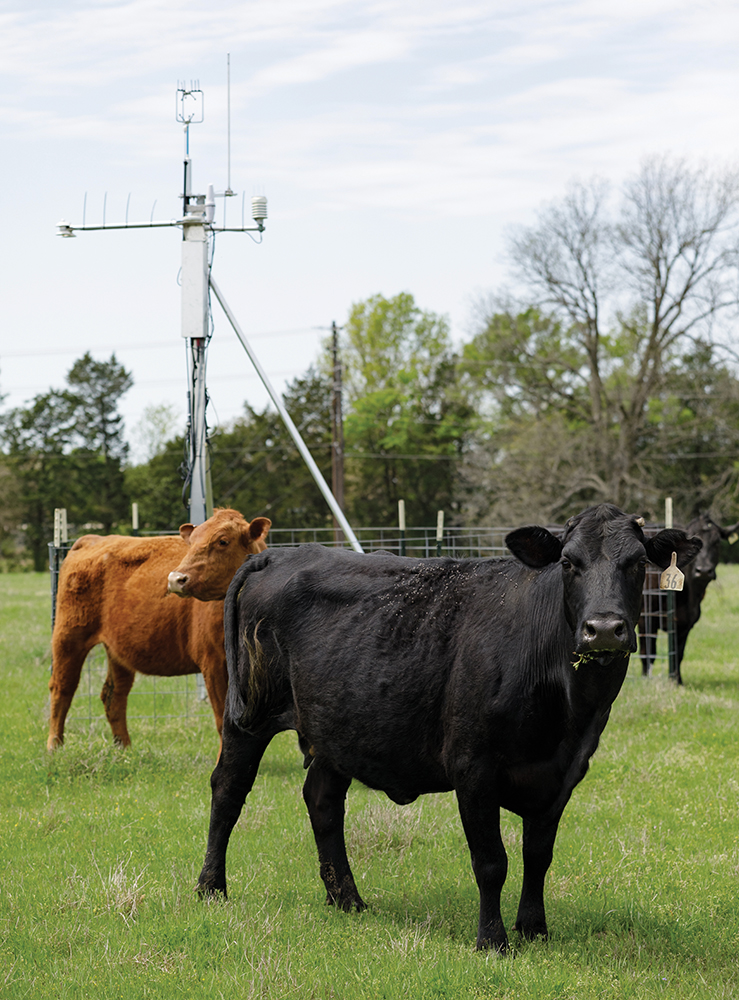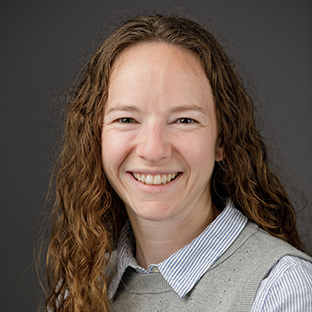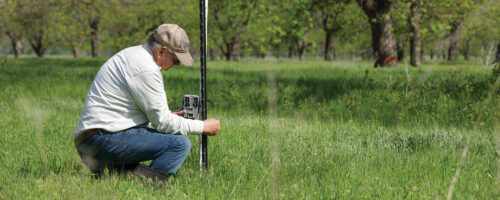Collaborating To Find Better Solutions
Regenerative rancher Andy Popp finds multiple benefits from saying “yes” to taking part in field research projects.
Most ranchers and farmers are wary of strange people and technology on their land, but Texas rancher Andy Popp has repeatedly opened his gates so researchers can use his land to benefit his industry.
Popp, the owner of Popp Farms at El Campo, Texas, participates in field research as a way to learn more about his land and create value for the next generation. Popp’s journey from conventional grain farmer to regenerative agriculture advocate has been defined by a willingness to try new things and a desire to leave the land better than he found it.

Transitioning the Land
Popp didn’t start out with a plan to become a regenerative land manager. He began his career helping with his family’s grain operation while working in a factory. But when the opportunity came in 2003 to lease and run the family farm full time, he took the leap.
“I still kept it as a grain operation with a few cattle,” he recalls. That changed after the death of his father and the realization that he wanted an operation he could manage solo, without seasonal labor and the grind of harvest season.
That pivot led him toward using less-conventional conservation practices that promised to reduce labor and costs. At the time, the Natural Resources Conservation Service (NRCS) offered incentive programs for farmers to incorporate no-till and cover cropping. Popp took advantage of their resources and became one of the early adopters of these conservation practices in his area, even speaking at events to share his experiences.
“Then I got intrigued with the regenerative side of it,” Popp says, “and decided to tie all that together and gear more toward regenerative management.”
The appeal was more than philosophical — it was practical. Regenerative systems, he found, allowed him to spread labor out through the year and reduce dependency on expensive inputs.
As he explored regenerative management and adaptive grazing, he also saw potential in adding goats to his operation.
Where he has the goats, it’s helped with brush management, Popp says. “I’ve been able to reduce chemical use.”
He says he views that as more than a benefit to his bottom line, as it aligns with his philosophy of management.
“I guess you have to be wired a little differently to get enjoyment out of knowing what you’re improving down in the ground versus just what’s up above that everybody sees.”

Supplying Real-World Data
While regenerative practices intrigued him, it was access to real-world data that convinced him to participate in the Metrics, Management, and Monitoring: An Investigation of Pasture and Rangeland Soil Health and Its Drivers (3M) field research project — a collaborative study by Noble Research Institute and other institutions exploring regenerative systems’ environmental and economic impacts.
He wanted “to get the data,” he says. “To get information to help us try to run our operation more efficiently. That was the reason I got involved.”
What makes Popp’s story compelling is his repeated willingness to host scientific equipment on his land. He’s taken part in field research projects in the past and found value in the experience. In his eyes, the 3M project couldn’t have been easier to jump into.
“It’s taken no work on my part, they take care of it all,” he says. “I get a notification when they’re going to come, I unlock the gate, and they lock the gate behind them on the way out. Most of the time they don’t even drive vehicles in there, they just walk in to repair their equipment or record data.”
The minimally invasive research setup on Popp Farms includes soil and water probes, a solar-powered weather monitoring tower and several remote sensors across the farm.
Popp is quick to point out that field research like this doesn’t serve only researchers or individual landowners — it has ripple effects across the industry.
“Every producer changes according to different data they read and hear about,” he says. “So somewhere, somebody has to (provide the land base) in order to get that data for all of us to improve our operations.”
That sense of collective responsibility and curiosity can be challenging to convey in an industry often suspicious of change.
Being “open-minded and ranching or farming seem to contradict a lot of times,” Popp says. He laughs as he admits that being raised in a German Catholic community made him aware of just how resistant some producers can be.
Perhaps due to some local skepticism about his regenerative methods, Popp has found more success leasing land from owners outside his immediate community.
“Some don’t want to see someone doing it differently than what they’ve done for 30 years,” he says. But those willing to partner with him benefit from improved soil health, decreased chemical inputs, and even reduced wild hog activity — thanks to well-designed goat fencing.

Supporting Future Generations
Participating in field research is also about creating opportunities for the next generation. His son, Colton, currently studying agribusiness and finance, is interested in returning to help with the operation. Popp is intentional about passing on the knowledge he’s gained — sending soil updates, financial screenshots and management notes to Colton to keep the learning going.
“I don’t want him to feel he has to do this,” he says. “But if he chooses to, that would be great.”
There’s also a quiet humility in Popp’s approach. He doesn’t see himself as a trailblazer, even if he is.
“I just kind of stay open-minded and deal with the info after I get it,” he says. “There’s usually something in there you can use to help improve your operation.”
In his first year with the 3M project, he’s embraced new experiences like being interviewed for the mental wellness component of the research — something he says is rare in agriculture.
“At first I thought it was odd,” he says. “But then I thought, it makes a lot of sense. Somebody actually cares about the mental health of farmers and ranchers.”
Participating in field research isn’t as daunting as it might seem, Popp says, and he finds the benefits, both personal and industry-wide, worth it.
“It also doesn’t hurt that they pay you for your time,” he says.
Andy Popp isn’t chasing fads or trends or trying to prove a point. He’s chasing answers. By staying open-minded and questioning the conventional, he’s shaping the future of agriculture — not just for his family, but for the soil, the science and the next generation of producers who will inherit the land.



Comment